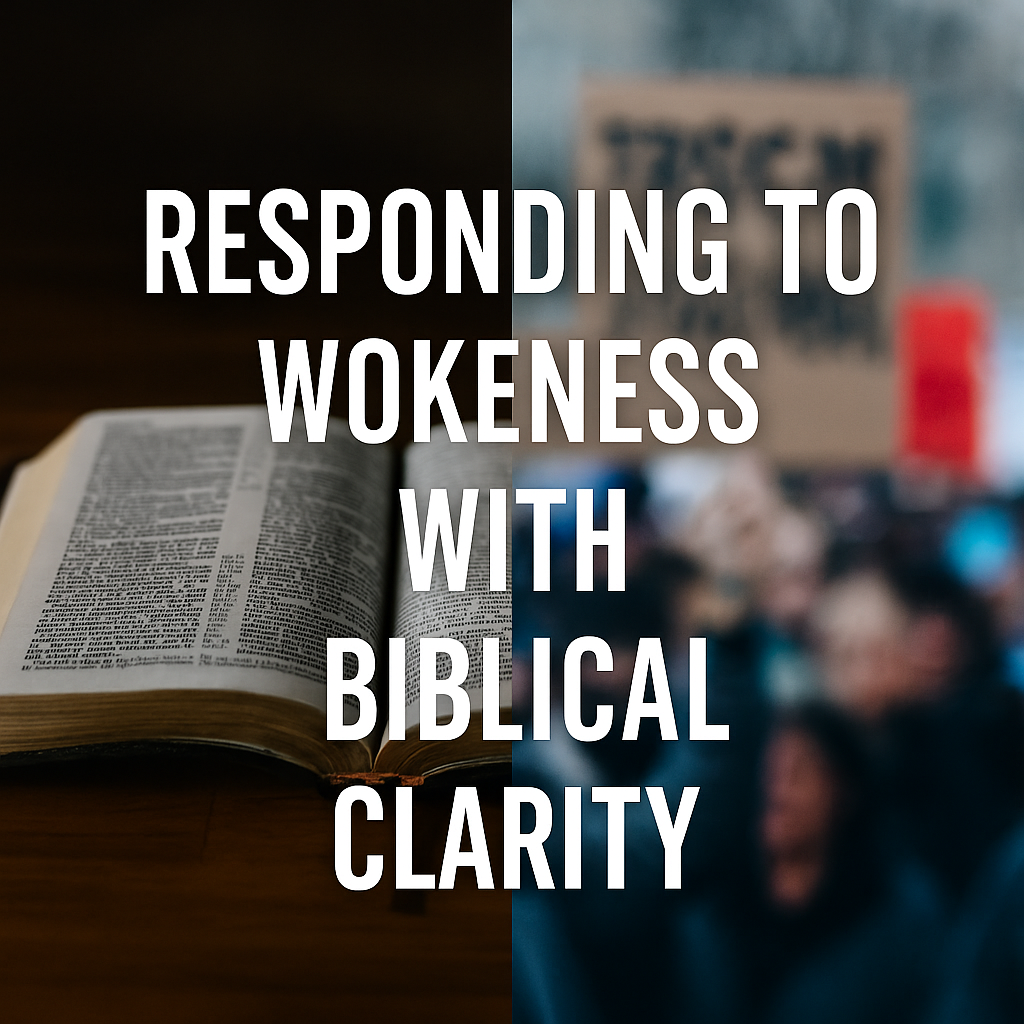⏱️ Estimated Reading Time: 3 min read
Responding to Wokeness with Biblical Clarity
The word “woke” is everywhere today. Originally associated with awareness of social injustices, the term has now become a flashpoint in politics, media, and even the Church. But what does it mean to be “woke,” and how should Christians respond to this movement with biblical clarity?
What Is Wokeness?
Wokeness typically refers to an ideological framework that emphasizes identity politics, social justice through the lens of race, gender, and sexuality, and the need to dismantle perceived systems of oppression. While concern for injustice can be a biblical impulse, the worldview underlying modern wokeness is largely shaped by secular humanism and cultural Marxism—not the Bible.
1. Wokeness Elevates Identity Politics Over Christian Unity
At its core, the woke movement prioritizes race, gender, and other identity markers as the primary lenses for understanding justice and injustice. This directly contradicts the Bible’s teaching that in Christ, believers are united regardless of ethnicity or background. Paul writes in Galatians 3:28, “There is neither Jew nor Greek, there is neither slave nor free, there is no male and female, for you are all one in Christ Jesus.”
2. Wokeness Replaces Biblical Justice with Secular Ideologies
The Bible calls God’s people to act justly (Micah 6:8) and to uphold truth and righteousness (Amos 5:24). However, woke ideology often promotes partiality, retribution, and division based on group identity—contrary to biblical justice, which is rooted in God’s character and is impartial (Leviticus 19:15; James 2:1).
3. Wokeness Divides What the Gospel Unites
The gospel tears down the dividing wall of hostility (Ephesians 2:14–16). Wokeness, by contrast, often reintroduces that wall—pitting groups against each other based on historical grievances or perceived power dynamics. This breeds disunity and resentment, not reconciliation and grace.
A Biblical Response
How should Christians respond in truth and love? Here are three ways:
- Engage Justice with Biblical Clarity: Christians must care about injustice—but we must pursue justice according to God’s Word, not worldly ideologies. True justice leads to reconciliation through the gospel, not resentment and revenge.
- Pursue Unity in Christ: The Church is called to be a united people—redeemed by Christ and reconciled to one another. Let us reject any system that redefines identity apart from being in Christ.
- Stand Firm on the Sufficiency of Scripture: God’s Word is sufficient to address every issue of life and godliness (2 Peter 1:3). We don’t need cultural fads—we need the unchanging truth of Scripture.
Conclusion
Wokeness is not simply a cultural trend—it’s a worldview that often stands in direct conflict with biblical truth. As Christians, we are not called to be culturally relevant at the expense of faithfulness. We are called to be faithful witnesses in a confused age. Let us respond to the challenges of wokeness not with fear or compromise, but with the boldness and clarity of God’s Word.
📚 Recommended Resources
🎧 Related from Contending for the Word Q&A
Explore more biblical answers to pressing cultural and theological questions in our series:
👉 Contending for the Word Q&A Archive »
📖 Further Reading on Servants of Grace
- Finding Hope in Divine Justice – A biblical look at justice rooted in God’s unchanging character.
- Woke Theology, Liberalism, and Biblical Sexuality – How modern ideologies undermine Scripture—and what Christians must do.
📘 Book Recommendation
- Voddie Baucham, Fault Lines – A clear, courageous, and deeply biblical critique of the social justice movement and its influence in the Church.
✉️ Have a Theological Question or Need Guidance?
We’d love to hear from you. Reach out via our contact form:
👉 Submit a Question »
Dave Jenkins is happily married to his wife, Sarah. He is a writer, editor, and speaker living in beautiful Southern Oregon. Dave is a lover of Christ, His people, the Church, and sound theology. He serves as the Executive Director of Servants of Grace Ministries, the Executive Editor of Theology for Life Magazine, the Host and Producer of Equipping You in Grace Podcast, and is a contributor to and producer of Contending for the Word. He is the author of The Word Explored: The Problem of Biblical Illiteracy and What To Do About It (House to House, 2021), The Word Matters: Defending Biblical Authority Against the Spirit of the Age (G3 Press, 2022), and Contentment: The Journey of a Lifetime (Theology for Life, 2024). You can find him on Facebook, Twitter, Instagram, Youtube, or read his newsletter. Dave loves to spend time with his wife, going to movies, eating at a nice restaurant, or going out for a round of golf with a good friend. He is also a voracious reader, in particular of Reformed theology, and the Puritans. You will often find him when he’s not busy with ministry reading a pile of the latest books from a wide variety of Christian publishers. Dave received his M.A.R. and M.Div through Liberty Baptist Theological Seminary.




